Drunk driving is common around certain holidays, especially Thanksgiving and the winter holidays. You may hear in the news that some cities in other states set up sobriety checkpoints in an attempt to identify and arrest drunk drivers. However, sobriety checkpoints are not legal in Minnesota.
What is a sobriety checkpoint?
A sobriety checkpoint is a roadblock set up by police. All drivers must stop at the checkpoint and police choose drivers at random to be checked for signs of intoxication. Sober drivers are permitted to go on their way following a check. Drivers who are allegedly intoxicated can be arrested.
Why are sobriety checkpoints illegal in Minnesota?
Federal law permits sobriety checkpoints, so why does Minnesota law prohibit them?
The U.S Supreme Court legalized sobriety checkpoints. According to the court, sobriety checkpoints were not a violation of the U.S. Constitution’s prohibition against wrongful searches and seizures because the safety to the public provided by checkpoints was more important.
However, the Court left the option open for states to prohibit sobriety checkpoints based on their own constitutions.
The Minnesota Supreme Court determined that the state constitution required officers to have a specific reason to stop a motorist they believe committed a crime such as drunk driving. This meant that officers cannot simply stop every motorist, as they would at a sobriety checkpoint, because not every motorist would be suspected of doing something illegal.
Motorists in Minnesota who have had a single drink this holiday season and are absolutely sober enough to drive safely should not have to worry they will be wrongfully stopped by police. The state prohibition against sobriety checkpoints ensures police will only stop motorists who are so intoxicated that they cannot drive with due care.

